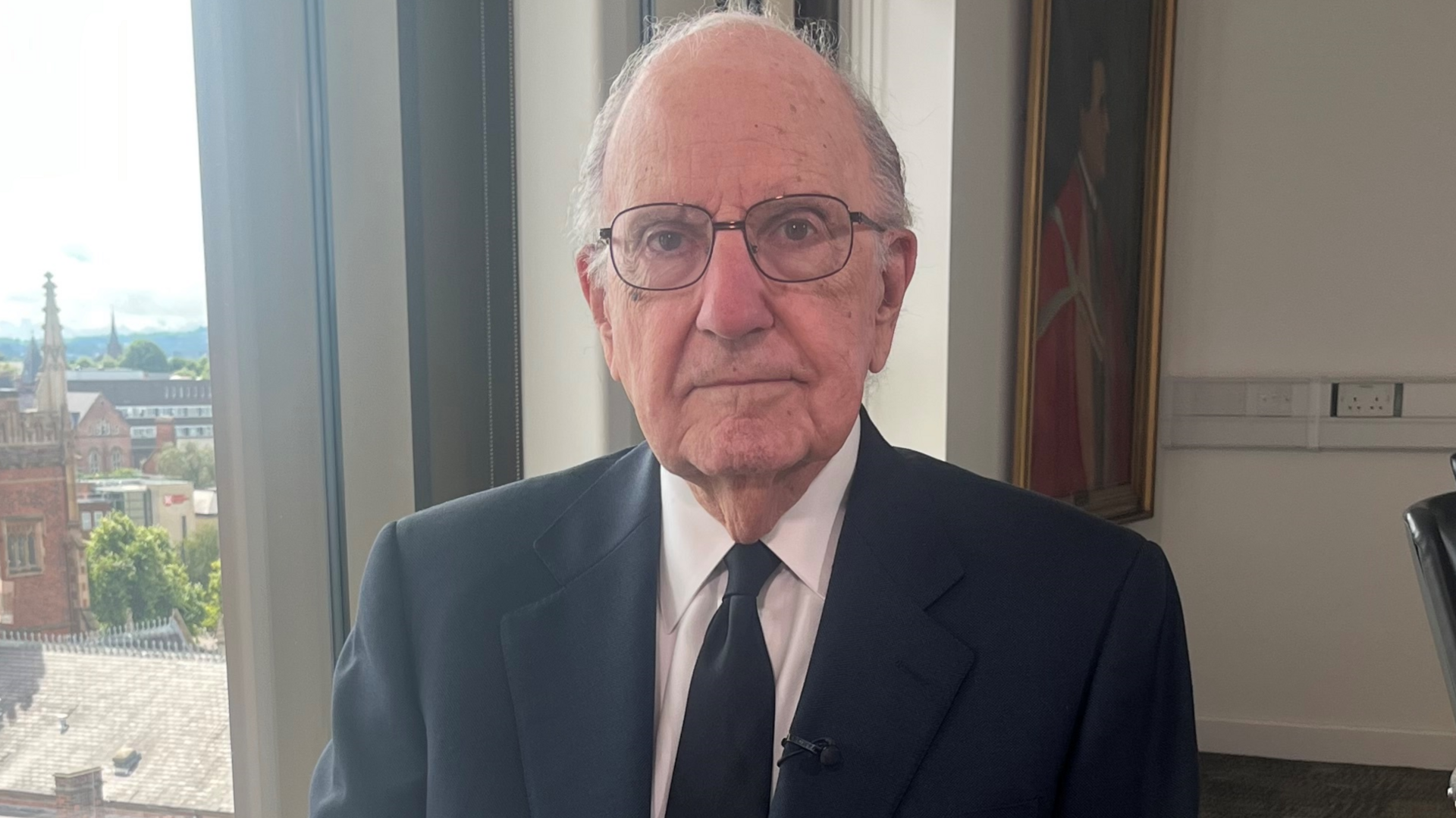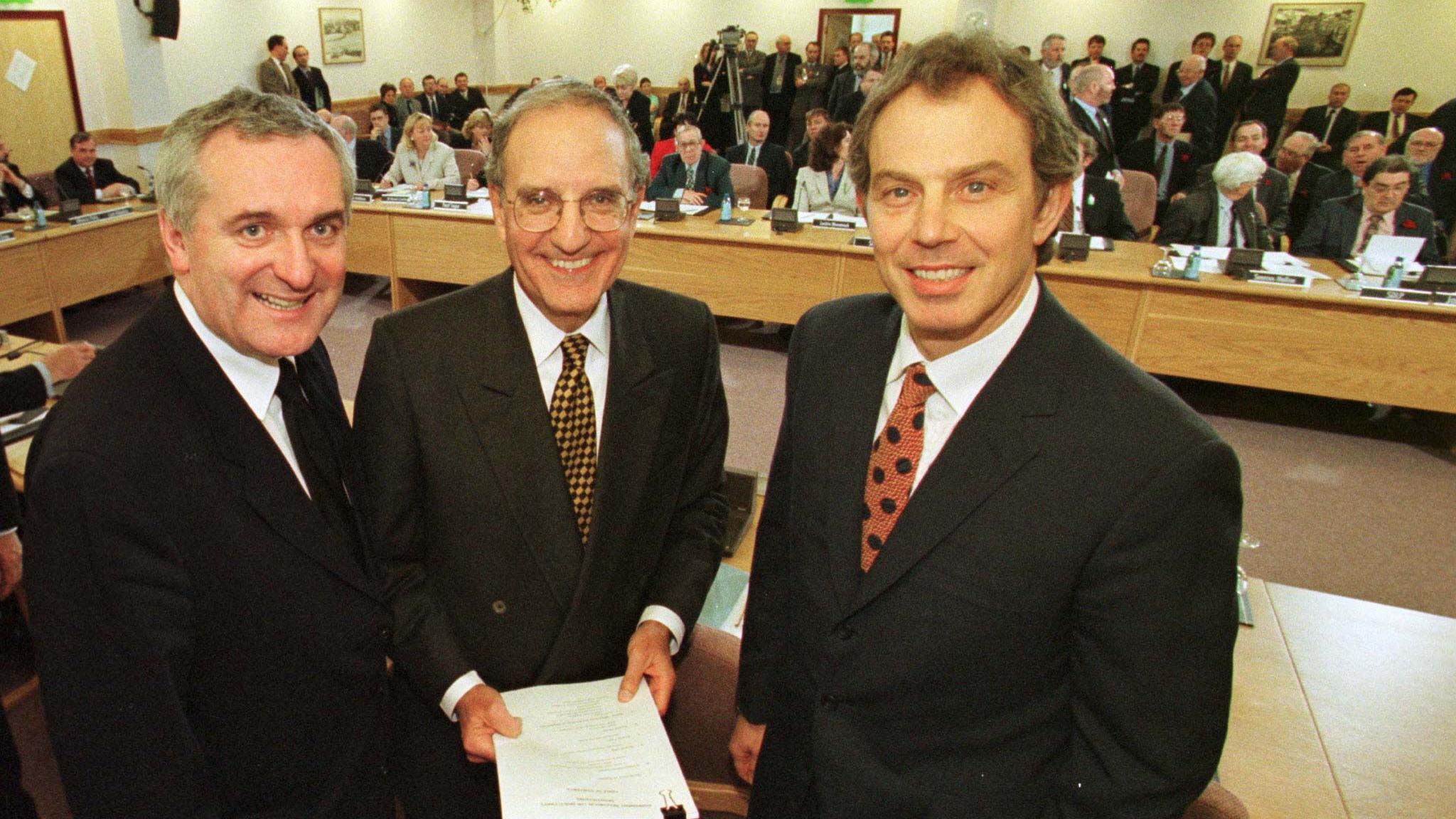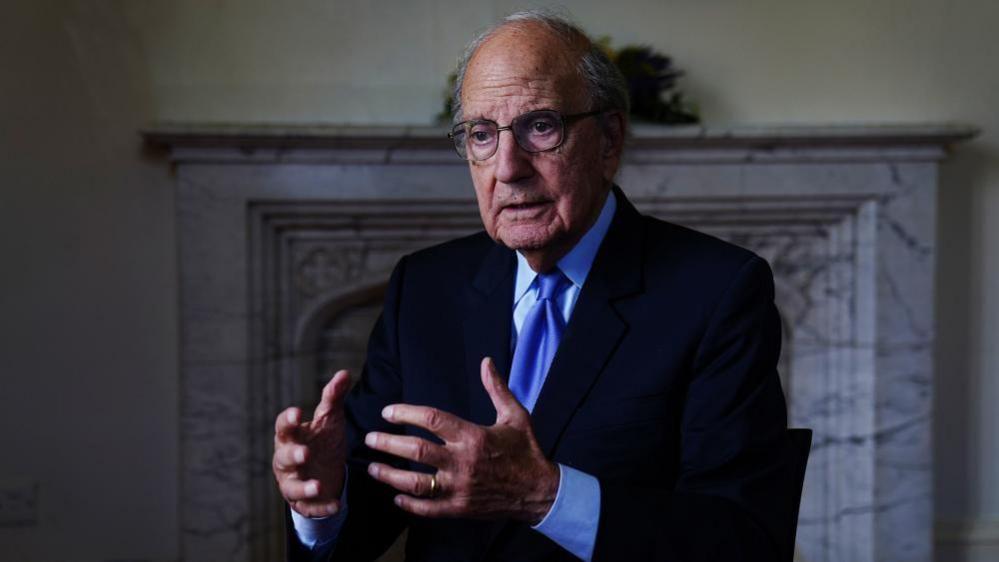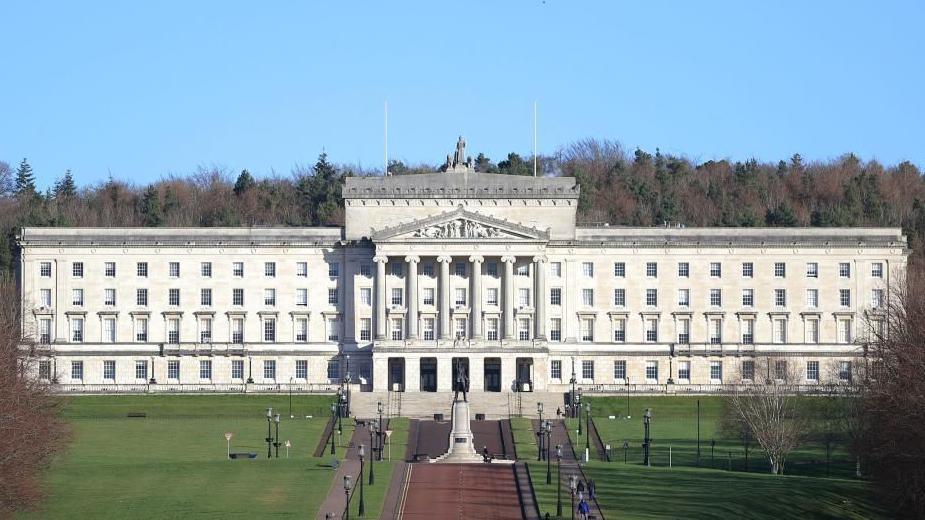'Don't hold Stormont to impossibly high bar', says peace negotiator

- Published
Northern Ireland's devolved government should not be held to an "impossibly higher standard" than other jurisdictions, former US senator George Mitchell has said.
The diplomat, who helped negotiate the 1998 Good Friday Agreement, said that "no country is free of political disputes" and "problems will continue".
Mitchell chaired Stormont talks which led to the historic peace deal to end decades of violence in Northern Ireland known as the Troubles.
The agreement 27 years ago led to a power-sharing government at Stormont between unionists and Irish nationalists.
But it has collapsed several times, including most recently a two-year hiatus until February 2024 due to a row over post-Brexit trade checks.
Speaking to BBC News NI's Red Lines podcast, Mitchell said Northern Ireland must continually renew the "resolve and courage that their leaders demonstrated in 1998".
He said he was "not at all" disappointed by how the system was currently operating.
"No country is free of difficulties. No country is free of political disputes," he said.
"And so my first caution is for the people of Northern Ireland not to hold Northern Ireland to a higher standard, an impossibly higher standard that no other country in the world could or does meet."

Pictured with Tony Blair and Bertie Ahern in 1998, George Mitchell has been lauded for his role in the peace talks
He said issues would continue as "social conflict is ongoing" and "takes different forms".
"Most importantly, what is essential is to meet the challenge of the needs of the people of the society," he added.
Mitchell said the Good Friday Agreement was a "political compromise" that recognised there would be further issues to address.
"It was understood and expected that there would be a period of time and change," he said.
"Nothing in life is permanent, not in any individual life or in the life of a society.
"And it is up to the people of Northern Ireland and their political leaders to demonstrate on an ongoing basis the resolve and courage that their leaders demonstrated in 1998."
From NI to the Middle East
During his political career, Mitchell was asked by former US president Bill Clinton in 2000 to lead a fact-finding committee on the Israeli-Palestinian conflict.
He was also appointed by former US president Barack Obama as a special envoy to the Middle East.
Mitchell said he was "very deeply concerned" by recent events in the region.
He said the violence and conflict there was "vastly more difficult and vastly more complicated" than issues in Northern Ireland.
But he said he remained hopeful "there will be a recognition there, as there was in Northern Ireland, that there is an alternative to conflict".
Mitchell was speaking following the launch of a new documentary film on his life, The Negotiator, which premiered last month in Belfast.
The 91-year-old said he was pleased to still be able to visit Northern Ireland.
"I'm American, proud of it, always will be, but a large part of my heart and of my emotions will forever be here with the people of Northern Ireland."
Red Lines: The George Mitchell interview
Mark Carruthers speaks to former US Senator George Mitchell who chaired the 1998 Good Friday Agreement talks.
Listen now on BBC Sounds
- Published16 April

- Published5 July
